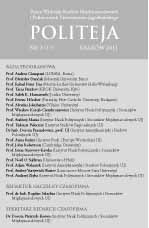Problem reorientacji polityki energetycznej Japonii po katastrofie elektrowni jądrowej Fukushima
The problem of reorientation of Japan's energy policy after the Fukushima nuclear power plant accident
Author(s): Tomasz MłynarskiSubject(s): Politics / Political Sciences
Published by: KSIĘGARNIA AKADEMICKA Sp. z o.o.
Summary/Abstract: The topography and geographical location makes Japan strive with nature forces, including frequent earthquake. It has serious consequences for nuclear energy usage, which is so far playing an important role in the Japanese economy structure. The earthquake and tsunami at the Fukushima nuclear power plant led to a series of nuclear accidents and undermined the foundations of Japanese energy policy. The country, a significant energy consumer on a global scale, faced a challenge of the reorientation of existing energy security policy objectives. Moving away from nuclear technology has resulted in trade surplus decrease and is going to weaken the economy. Increased participation of conventional fuels in the country’s energy balance has raised not only domestic but also global implications, leading to a significant import increase and consequently higher prices for energy resources around the world. At the same time, thanks to environmental friendly technologies investment policy, the country could become a world leader in the “green energy”.
Journal: Politeja - Pismo Wydziału Studiów Międzynarodowych i Politycznych Uniwersytetu Jagiellońskiego
- Issue Year: 8/2011
- Issue No: 17
- Page Range: 127-144
- Page Count: 18
- Language: Polish

